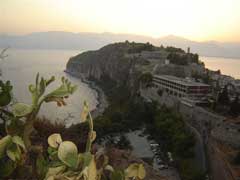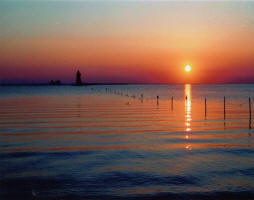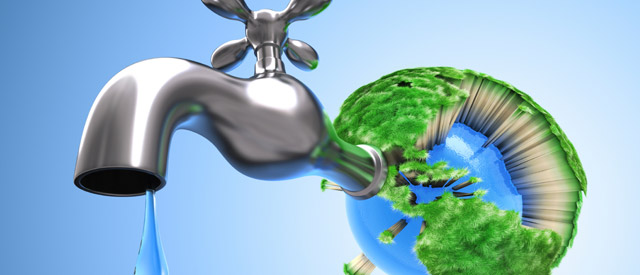 Doubts cast over EU water directive
Doubts cast over EU water directive
The numerous exemptions allowed from the Union's Water Framework Directive (WFD) are jeopardising the legislation's 'good water status' objective, warned a law professor speaking at a water management conference last week.
"I'm not yet fully convinced of the profits of this new system, that it alone will lead to better protection of water systems or achieve the goals of the Water Framework Directive (WFD)," said Marleen van Rijswick, professor of environmental law and policy at the University of Utrecht, addressing the conference on 23 April.
Her comments come as the EU 27 are due to establish, under the WFD adopted in 2000, river basin management plans by the end of the year in order to ensure "good water status" in a given geographical area.
While the bloc's WFD introduces an obligation for member states to cooperate on shared river basins, the directive only contains "an obligation of best effort and obligation of means" and not an "obligation of results", which was the case in older water directives, van Rijswick said.
This "procedural approach" to water management "leads to a less clear division of powers," more bureaucracy and unfair sharing of burdens and profits across the whole river basin area, she argued. For example, downstream water states have no instrument to force upstream states to take additional measures if they don't want to, van Rijswick explained.
Furthermore, using every exemption from the very beginning, as is already the case in the Netherlands, England and Wales, postpones achieving 'good water status' "at the very earliest until 2037," she said. Meanwhile, the main objective of the WFD is expected to be reached by 2015.
It is hoped that sharing responsibility between member states for river basins that spread beyond national borders will tackle new problems more effectively than within national borders. But it is not clear how their obligations can be enforced before the courts, as member states have different authorities responsible for water management at local and national level, she continued.
"In the future, European law should create the possibility to keep all member states within a river basin together responsible for reaching the goals, instead of each member state individually," van Rijswick concluded.
Helmut Blöch, an official in charge of the directive's implementation at the European Commission's environment directorate, said only 16 member states had so far published their river basin management plans. And here again, "we are not talking about quality, they've just published the plans," he underlined. Austria, Cyprus, Denmark, Greece, Italy, Malta, Portugal and Slovenia have not delivered yet, and Hungary, Romania and Slovakia "still have significant gaps," he said.
Pieter de Pous, a policy officer at the European Environmental Bureau, noted that if southern countries like Spain, Portugal, Italy and Greece had been very late with their plans, it was because water is a "political question", as their economies depend heavily on tourism, which consumes a huge amount of water.
| Contact information | n/a |
|---|---|
| News type | Inbrief |
| File link |
http://www.euractiv.com/en/environment/doubts-cast-eu-water-directive/article-181667 |
| Source of information | EurActiv |
| Keyword(s) | EU-WFD |
| Subject(s) | POLICY-WATER POLICY AND WATER MANAGEMENT , RISKS AND CLIMATOLOGY , TOURISM - SPORT - HOBBIES , WATER DEMAND , WATER QUALITY |
| Relation | http://www.semide.net/initiatives/dce |
| Geographical coverage | EU, Spain, Portugal, Greece, Italy |
| News date | 28/04/2009 |
| Working language(s) | ENGLISH |
 you are not logged in
you are not logged in





